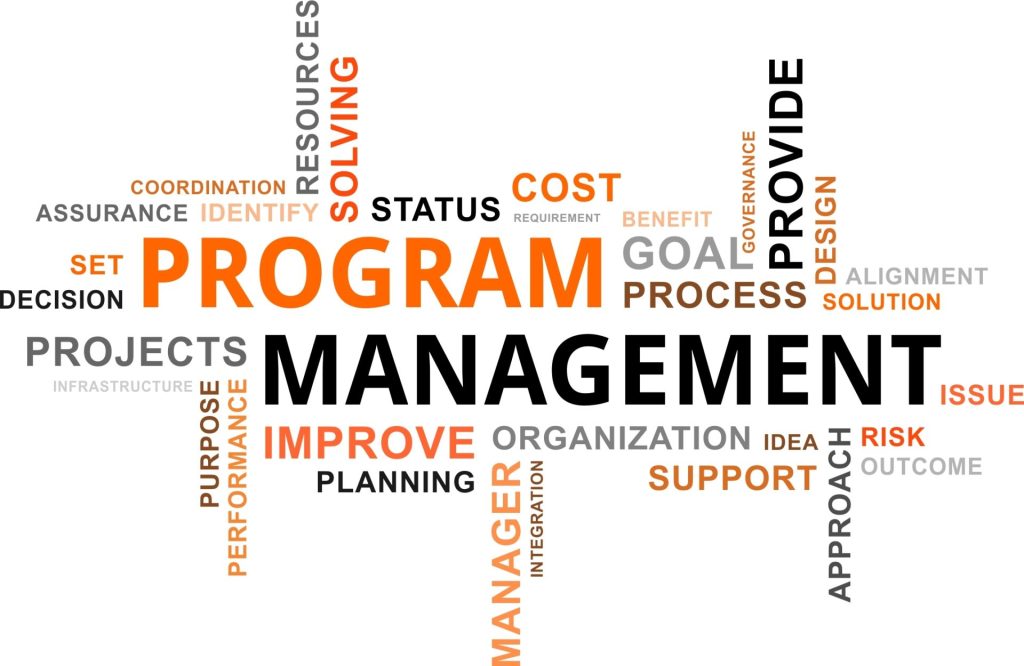What is a programme?
Successful programmes enable transformational changes for or within an organization. They exist to coordinate, direct and oversee the implementation of a set of interrelated projects to deliver outcomes and their benefits, which are aligned to an organization’s strategic objectives.
A programme may comprise projects across different areas of the business. For example, the launch of a new product or service may rely on projects running in the sales, marketing, distribution and IT departments, all of which are focused on delivering the outcome required by the programme. A programme can be a standalone programme or form part of a portfolio.
While a project is typically focused on delivering a specific output, a programme may deliver ongoing outcomes and business benefits. Programmes usually last between one and two years.


What is programme management?
Programme management is the overall management of the interrelated projects that make up the programme. It also involves linking in with the business change functions within the business areas affected to ensure that the changes are properly implemented. As with project management, planning work and tasks is a key part of programme management, but the work is more closely aligned to the organizations ongoing strategy, rather than specific deliverables.
Programme management often provides a layer of governance above specific projects and ensures that they are run effectively.
As in project management, the aims and desired benefits of a programme are identified in a Business case. The Vision statement sets out the desired future state following programme delivery and the programme Blueprint sets out what will have been achieved when the programme is completed and all the projects within it are no longer required.
Key aspects of programme management
- Governance – defining the programme roles and responsibilities as well as the processes and metrics to assess its progress
- Management – planning the projects and the overall programme, ensuring that regular reviews are undertaken and that stakeholders are engaged
- Financial management– costs of managing the programme need to be tracked and controls need to be put in place
- Infrastructure– creating the right work environment to support the programme Planning – developing a programme plan based on the specific projects, resources, timescales and controls for the overall programme.

